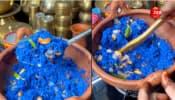London: In what could raise hopes for
thousands of people suffering from multiple sclerosis, British
scientists have claimed to have developed a new stem cell
therapy which has shown some "benefits”.
The treatment, developed by a team of researchers from
the University of Bristol and North Bristol NHS Trust,
involves injecting multiple sclerosis patients with stem cells
taken from their own bone marrow.
The scientists, who are now carrying out one of the first
ever trials into the procedure, believe that they have proved
that the treatment works, The Telegraph reported.
The treatment has stabilised the condition and shown some
"benefits", said Prof Neil Scolding, who led the research.
"We are encouraged by the results of this early study,"
he said.
"We believe that stem cells mobilised from the marrow to
the blood are responsible, and that they help improve disease
in several ways."
Multiple sclerosis, or MS, is an incurable disease that
affects around 85,000 people in Britain slowly attacking the
central nervous system and leaving many sufferers eventually
wheelchair bound. For some reason the immune system turns on
healthy nerve cells and damages them.
Previous studies in the laboratory have shown that stem
cells are able to develop into other cell types, travel
through the bloodstream to the brain and are actively taken up
by damaged areas.
The latest trial, which lasted a year, is one of the
first to use patients` own bone marrow stem cells to treat
their MS.
It involved six people with MS, aged between 30 and 60,
having a pint of bone marrow extracted from their pelvises.
Bone marrow is known to contain stem cells capable of
replacing cells in many types of tissues and organs.
The material is filtered of bone and fat leaving pure
stem cells which are then injected on the same day back into
the patients` arms.
Over the year, the patients were monitored closely and
given regular brain scans to see what impact the treatment has
had on them.
Researchers found that the patients suffered "no serious
adverse effects" from the treatment and tests suggested the
disease was stable and there had been improvement in the
effectiveness of damaged nerve cells.
They showed that the damaged nerve pathways were able to
carry electrical pulses more effectively after the treatment.
Dr Claire Rice, co-author of the study, said: "The
results are very encouraging. We would have expected these
pathways to get worse but they have actually got better.
"It is exciting because the treatment is relatively pain
free and patients do not need to stay overnight in hospital."
Now the researchers want to carry out a longer and larger
study to see if the treatment can be improved and works
consistently.
The findings of the study were published in the journal
Clinical Pharmacology and Therapeutics.
PTI
















